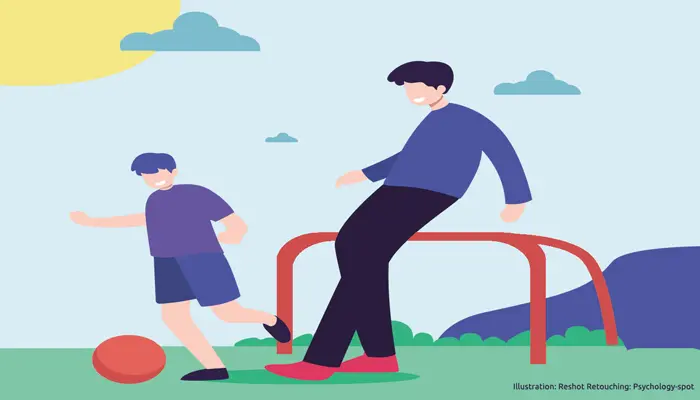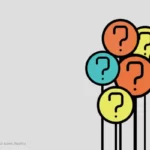
Kids don’t need more role models, just let them be themselves. They don’t need idols to imitate, but they need to be given space to develop their personality. They do not need to identify themselves with illustrious figures or with the famous of the day, but rather consolidate their self-confidence. They do not need an education that forces them to look outside in search of patterns to imitate, but that provides them with the tools to become unique, free and self-determined people.
The supermarket of idols and values
“Like who would you want to be?”
That question was asked by a teacher to my entire class, when I was 9 years old.
At first it surprised me. Then, when the rest of my classmates started mentioning names of historical or famous people, my brain began to work frantically looking for the model that I would have liked to imitate.
I didn’t find any.
It was not arrogance or ignorance. There were personalities that I admired. Of course. But there were too much of them and, above all, it didn’t make sense to be like any of them because at that age I was already aware that I was someone different. We all are.
Any child who answers “I want to be myself” to that question will amaze teachers because our education is fundamentally designed to celebrate characters who embody socially accepted values. Children are expected to see them as role models. That they compare themselves with their idols and strive to be the same. That set their standard where those people set them.
At a certain point, when the old idols become obsolete and no longer reflect the values that society wants to promote, new models are sought. Unfortunately, most of the new cultural movements that promote diversity and authenticity do nothing but replicate that old pattern, limiting themselves to changing or expanding the models to follow.
As a result, the “freedom” of children is limited to choosing in a supermarket increasingly crowded with idols who compete with each other to attract a greater number of followers. However, authentic freedom does not consist in choosing between options that others have predetermined, but rather in being the architects of our destiny, discovering who we want to be. Freedom is not choosing, it is creating. Freedom is not imitating someone, it is being who you want to be.
Freedom means nothing, unless it implies the freedom to be oneself
For centuries we have believed that the existence of idols and role models for young people and children is positive because it gives them an “orientation” and helps develop in them the values that society expects. Therefore, it is difficult to conceive of another type of education. In fact, there’s plenty of those who believe that an education without role models implies falling into the most absolute moral relativism.
However, another type of education is possible. We have already had it, but we have to look far back to find it: we must go back to pre-Socratic times. That education, focused on developing the capacity for questioning and autonomous thought, gave rise to great philosophers who are practically forgotten today and largely misunderstood, such as Anaximander, Heraclitus, Anaximedes, Parmenides, Anaxagoras, Protagoras, and many others.
That education was not intended to fill the mind, but to open it. Its goal was also not to provide models for students to imitate, but rather to guide them, so that they could become the person they wanted to be. Obviously, this type of education is more “dangerous” because it generates more independent people, capable of thinking and deciding for themselves, instead of limiting themselves to choosing from an arsenal of idols conveniently celebrated by the prevailing culture.
However, our children do not need more idols that encapsulate them in predetermined models of thought and action, often antagonistic to each other that lead to social polarization. They don’t need to be taught to look outside for idols, but to be encouraged to look within to discover who they want to be. They do not need to be set too high standards that they cannot reach or too low to weigh down their potential.
Children, in short, do not need models with which to identify themselves to the point of reducing their innate wealth to a handful of labels, but rather the freedom to explore and express themselves as the unique and unrepeatable people they are. The purpose of education is not to make children “fit” in any way possible in pre-established molds but to create spaces for assertive self-expression that foster authenticity, free thought and self-acceptance.
That is really the greatest gift we can give our children because, as Ralph Waldo Emerson wrote, “To be yourself in a world that is constantly trying to make you something else is the greatest accomplishment.”



